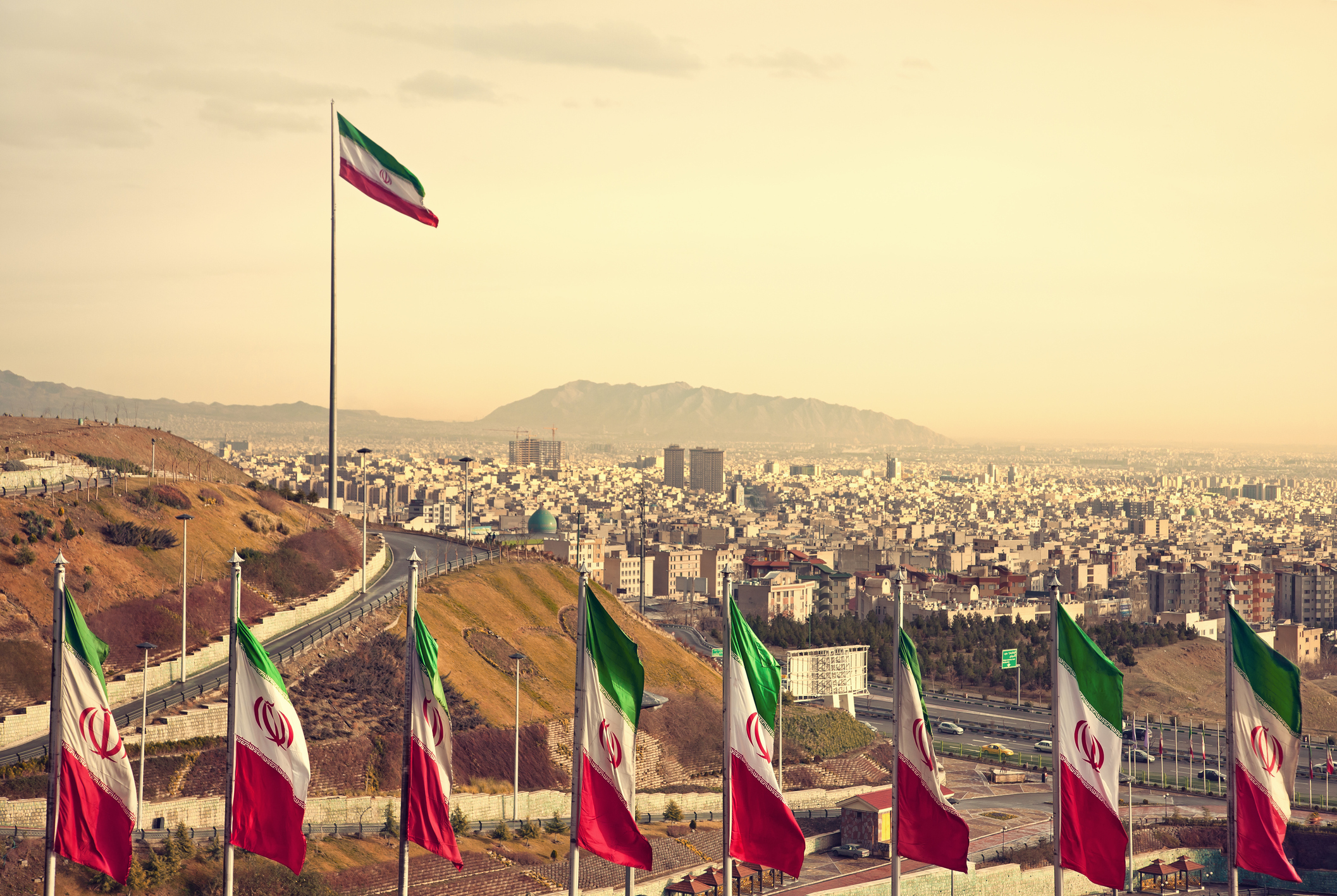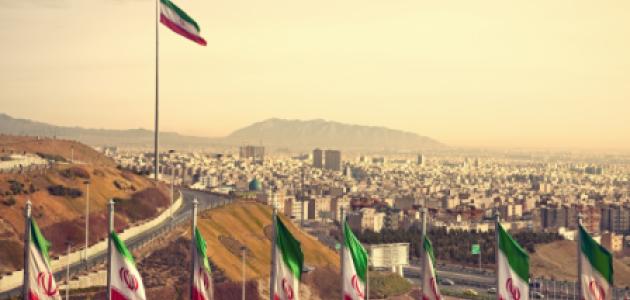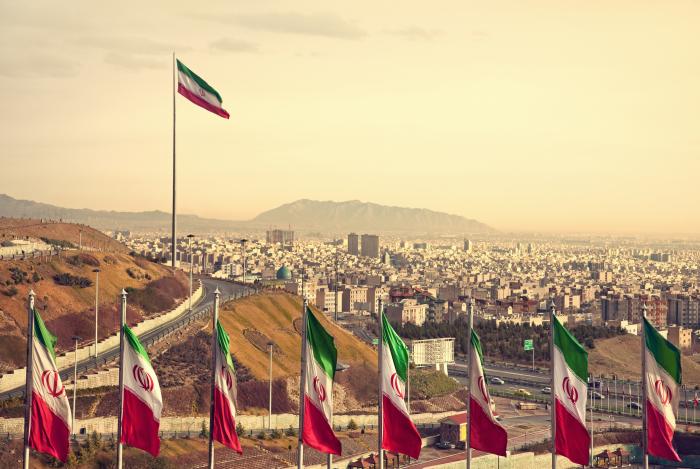Abraham D. Sofaer is a George P. Shultz Senior Fellow (Emeritus) in Foreign Policy and National Security Affairs at the Hoover Institution. He is also a former federal judge who has written widely on how the United States should deal with the Iranian regime. He was in Israel on April 13 when Iran attacked with several hundred drones and missiles.
Chris Herhalt: What was it like when sirens were sounding, and people were ordered to shelter in place and wait for those missiles and drones heading for Israel?
Abraham D. Sofaer: It was very significant. I wouldn’t say “traumatic” because in the middle of the night, you don’t panic as much as you would if you were really fully aware of what was going on.
Before the sirens sounded, there were several booms, really large military-type booms, warlike noises. And those booms were the missiles being intercepted and blown up in the air, very high up in some cases. That was the wakeup. Then the sirens hit, and you’re supposed to go into a bomb shelter. And if you don’t hear a siren after that for ten minutes, you’re allowed to leave the bomb shelter. Israel had help from the United States, Britain, France and Jordan—and apparently, many other intelligence services—in meeting this attack. The Jordanian response was especially noteworthy. Because of the successful interceptions, there was no repeated siren, and everyone went back to sleep.
It was a dramatic defensive achievement—one that I wish was not so vehemently thrown in Iran’s face, because it’ll just make them want to do better next time. And they’re very talented.
I think we’re in good shape because of a combined strategy. It has multiple layers of missile defense, in addition to other countries’ participation in providing intelligence, which is very important. It apparently worked. I think about the Reagan administration, when I was serving George Shultz as his legal adviser, and I became victimized by my interpretation of the ABM [Anti-Ballistic Missile] Treaty, which the Democrats claimed was just a product of fantasy and political leverage. They were saying it would be impossible to defend against missile attacks. People forget these things. I didn’t, because I was attacked as though the entire Strategic Defense Initiative was a fraud. I just wish Ronald Reagan were still alive so he could see how amazingly productive the missile defense research and work has been in a period of thirty to forty years.
Herhalt: After Iran attacked, Israel launched its retaliation. Apparently, it included some drones and a number of air-launched missiles. But both sides have said very little about it. Is this a good sign for those hoping for de-escalation?
Sofaer: Yes, it is a good sign for those hoping for de-escalation. I wouldn’t be surprised if there was really substantial signaling going on ahead of time, both directly and through Oman and other traditional intermediary states. Iran tried to mislead Israel and other states by saying it was launching only a “moderate” attack; in fact, it was a massive attack. And Israel knew that and said so, and said it would have to respond. And I think it was clear that if Israel were to respond in a moderate way, especially in a way that didn’t harm civilians, there was a very good possibility that Iran would stop, and there would be an end to this particular round. That’s what I think happened.
Herhalt: In Israel’s April 1 attack on an Iranian diplomatic compound in Damascus, is it fair to say that Israel crossed a red line by attacking a building that, at least nominally, was supposed to have diplomatic status? Or is that just a smokescreen?
Sofaer: I don’t think there’s any such thing as nominally supposed to have diplomatic status. Either a building has diplomatic status, or it does not. And this building, apparently it did not. The people who are saying it was attached to a diplomatic building are not being specific enough. It is adjacent to it, but from what I understood when I read about it, it is a distinctly separate building. I was very concerned when I first heard about this attack because there’s at least superficial general agreement on the Vienna Convention provision relating to the protection of diplomats and their designated properties. This would have been a terrible thing if they were actually attacking an embassy, which is the way some of the stories initially were written. But it turns out that that was not the case: they were in a separate building, as I understand it. The building did not have diplomatic immunity, diplomatic status, and therefore there was no violation of the Vienna Convention.
Herhalt: If you were in the White House today, would you do anything differently in terms of de-escalation?
Sofaer: Well, I think it’s wrong and potentially damaging for the United States to assume the role of an overall judge of what Israel regards as its national security needs. If in fact the United States controlled Israel, then at least that would be something the United States should consider, but that is not the case. And so, it doesn’t seem healthy to me for the United States to act as though it is entitled to review an Israeli attack and to tell Israel not to engage in it and expect Israel to obey. But even though the Israelis are assertive and make their own judgments, ultimately, they don’t mind getting US opinions.
Of course, famously, [Israeli Prime Minister] Yitzhak Shamir accepted the proposition from President George H. W. Bush that he should not strike back at Iraq during the first Gulf War. That was different. When you have a clear record, when you see Israel is struck, you get in touch with Israel and say what the interests of the United States and the alliance are and that we might lose some members if you struck back: “You didn’t suffer greatly from the damage, and we are going to take care of these people.” We weren’t saying, “Israel, don’t attack.” We were saying, “Israel, don’t worry. We’re going to take these guys to pieces.” And I don’t think Shamir was happy that he couldn’t respond, because it made him look like he was deferring to the United States as opposed to doing what was in Israel’s interests. But even in retrospect, I think people are convinced that Shamir made the right decision.
Herhalt: Do you think the immediate pattern is now finished or do you think it will continue?
Sofaer: I don’t think it’s the end of Iran’s use of surrogates or its desire to use surrogates, not at all. It’s a very valuable modus operandi for Iran, as I wrote in my book—which is now several years old and I should bring up to date, but this point is still valid. It is a very advantageous thing for Iran to be able to use a surrogate to attack an enemy and then to expect that that surrogate will be attacked and Iran will not. Iranians in the surrogate country might be attacked, but the general behavior of countries attacked by Iranian surrogates was consistent with what Iran wanted, even though the surrogate was acting at Iran’s behest, relying on its support and maybe even its armaments.
Iran will continue to try using surrogates. But Iran took away whatever potential advantage there might be in surrogates serving as a limiting factor in the responses to an attack. Now that Iran has itself attacked, it will be clearer than before that Iran is acting through its surrogates. The limitation that was accepted in principle by many states—less and less so Israel, and not by the United States, either—has been harmed from Iran’s point of view. Perhaps Iran was under a lot of internal pressure to respond to that killing of the leadership of the IRGC [Islamic Revolutionary Guard Corps] in Damascus.
Herhalt: Do you think this latest back-and-forth has changed what the IRGC will do?
Sofaer: That’s a very good question. I think Iran is hurting financially, obviously, but it does feel a lot of pressure to perform at a higher level than it has been. And the Israeli attack in Syria was extremely successful from the viewpoint of Israel and the West in terms of taking out real leadership, established leadership people. So, Tehran feels the pressure to act, and I think they will resolve to act more effectively.
Underestimating Iran is a mistake. For a long time, we saw evidence of Iran’s failure to develop ballistic missiles, for example. This continued for quite a few years. But now, they do have the ballistic missiles—hundreds of them—and the missiles are very difficult to shoot down. Apparently, Israel did well against them with its Arrow interception system. So, Iran has to try to do better, and it will.
Underestimating Iran in the sense of considering them inferior in spirit, or inferior in determination, is a big mistake. Given all the intellectual ability in that country, with its serious determination to triumph, and all the monetary benefits that the religious extremists in the IRGC and elsewhere benefit from, I think they will make a real effort to improve their missiles and drones. I think we have to be absolutely vigilant about that and prepare for a more challenging round.

















